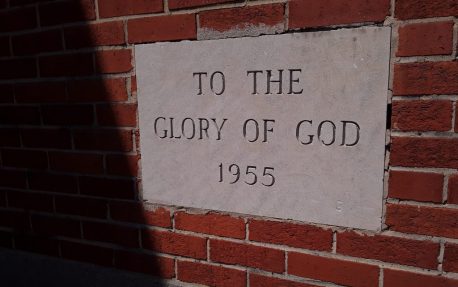This man came to Jesus by night…

(Jim Fields as Nicodemus, VBS 2018)
This is the first time in several years that the students of our community have not been visited by Nicodemus. Our Vacation Bible School was cancelled this year as a precaution against spreading the COVID-19 virus. Even in the heat of summer, Brother Jim Fields from First Baptist Somerset regularly dons the costume and persona of the First Century Pharisee who came to Jesus by night. It has become a cherished tradition and Brother Jim and his wife have, along with so many others from Somerset, been greatly missed this summer. Even more, we have missed the time of teaching, explaining and rejoicing with students in our community that God loves us and sent his Son to save us.
For God so loved the world, that he gave his only Son, that whoever believes in him should not perish but have eternal life.
John 3:16, ESV
Even as Nicodemus struggled to understand Jesus’ identity and message, he saw the goodness and godliness of both. Jesus met with him in secret, known only to his close followers, and the account that John preserves in his gospel has become one of the most cherished passages for preaching and teaching the good news that Jesus is the Son of God and came to the world to save sinners.
The third chapter of John gives us a great example of how Jesus taught his disciples and how he took time to answer the questions and concerns of just one person who came to him with doubts and left without completely resolving them. As we read this chapter and prepare for worship together this week, let us pray that others will be born again to see and enter Jesus’ kingdom, receiving his testimony by the work of the Holy Spirit.
We missed VBS this year. But there are plenty of ways to evangelize; spread the good news, the gospel, or the evangel, that are pandemic-proof. The gathering of Jesus and a few of his closest, earliest followers with Nicodemus was well within the constraints of our modern need for “social distancing.” And this stands in God’s Word as one of the greatest examples of personal evangelism, performed by the only perfect person, the Son of God, “because of the great love with which he has loved us…”







